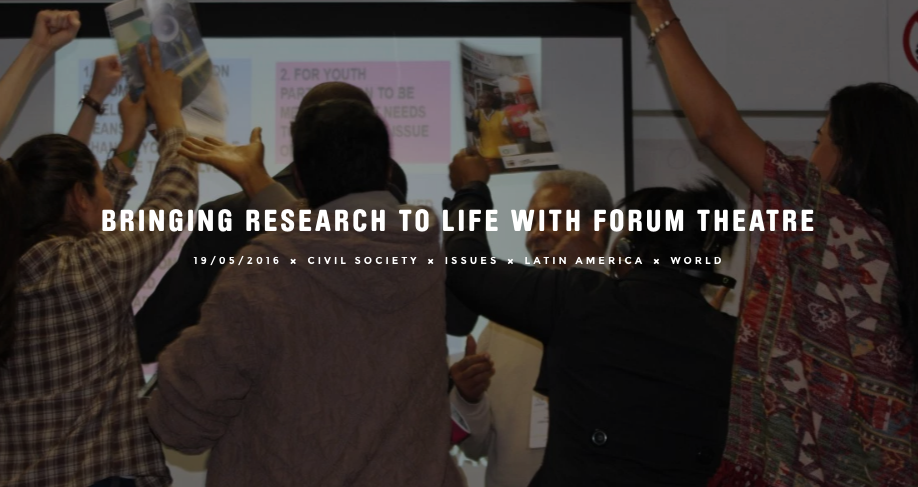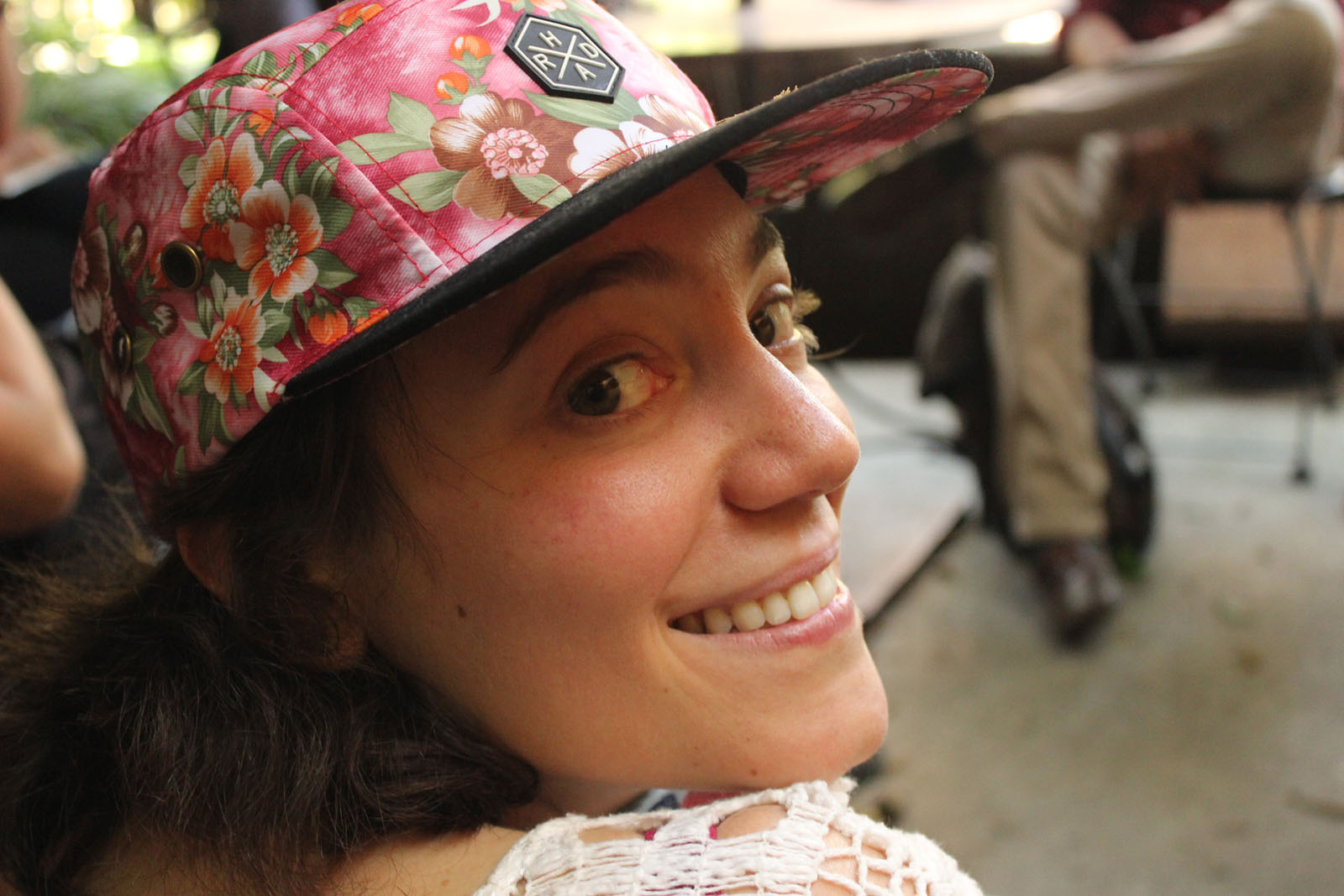
The term ‘launching’ makes me think of throwing the report at somebody.
The report ‘From Rhetoric to Action’, published in January this year, is a compilation of 18 researchers, tapping into 18 corners of the world, 18 perspective, 18 questions. This report was a lot, a lot of work. But now what? The advocacy piece of the project is probably the hardest. The challenge is to make sure that all this effort does not become a dead bullet point on a white page.
So, after much discussion, my collegues and I decided to do something a bit different from a ‘launch’. We wanted to give the report life, and make it fun.
In our session at International Civil Society Week, we used a forum theatre exercise to explore the obstacles young people face in order to participate in decision making and lead development in their countries. Important detail: We had a big (and cool) challenge. The room had 40% English speakers and 40% Spanish speakers. The bilingual 20% helped to translate, and the whole group was shockingly patient throughout the process.
So how did the workshop work?
We decided to use an exercise inspired by Boal’s forum theatre, which at Recrear we have adapted to carry out research with young people. The idea is to ‘rehearse reality’, to experience our agency, or lack of it. What would you do in the situation? How can we change the situation?
We divided the participants in four groups. Each group picked one of the considerations for action in the ‘participation’ section of the report. We asked each group to create a 2 minute sketch illustrating some of the challenges that the recommendations pointed out, based on their lived experience. After the first rehearsal, we asked the group to act out the exact same scene again. This time, anyone could step in, tap on the shoulder of one of the actors and swap to change the outcome of the scene.
Here is an example:
First scene
Second scene
In the second scene, the Mayor presents her plan of action as a new Mayor in front of the press. And guess what? She presents exactly the project that the two young people had proposed! (This caused a spontaneous ‘ohhhhhhhhh’ amongst the public). End of second scene.

Replay: First scene
The first actor substituted was one of the two young people presenting the project. This time, the new actor negotiated with the Major: ‘You could use this project to promote your own campaign!’. End of first scene.
Replay: Second scene
In the second scene (the Mayor was never substituted) the person who introduced the Mayor also introduced the civil society counterpart. One of the young people stepped in the podium with the Mayor, who kept bragging: ‘The fact that we are implementing this project is a sign of how open to civil society my administration is!’. End of second scene.
The exercise sparked a lively discussion around how people in power don’t engage with young people in a meaningful way and, in some cases, manipulate them and steal ideas from young organizations. One of the big questions that that was raised was: should young people feel ownership over their ideas or should we just be happy they are implemented at all?
This exercise was repeated with another group and then again in a second session with a wider audience. We explored themes including access to spaces for decision-making and power-sharing, violence and repression, and partnerships between looser networks of young people and more established organisations.
I loved the two workshops we hosted! I loved them because we did not just ‘launch’ the report, the report came to life. I could not wish anything better than for the research ‘From Rhetoric to Action’ to spark new conversations, and become a tool to learn even more about how young people experience their communities.
Our reality is constantly changing, so let’s keep research alive.
** This blog was published on Restless Deveopment’s blog. Continue reading here: Bringing research to life with Forum Theatre
